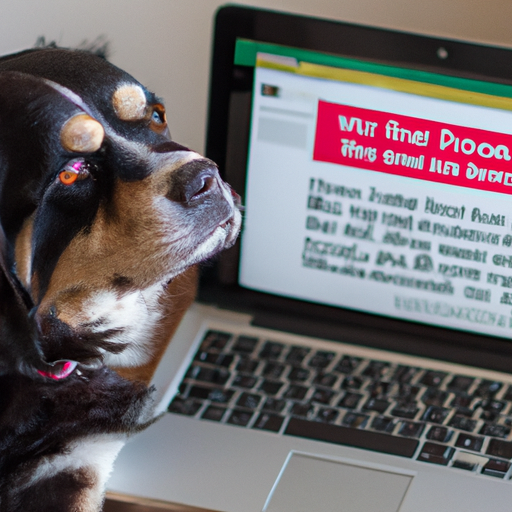As a dog owner, it’s essential to understand the risks that certain human foods can present to your canine companion. Unbeknownst to many, the delicious treat loved by humans, chocolate, is a significant hazard to dogs. This article will provide a detailed guide on how to treat chocolate poisoning in dogs, a common yet potentially fatal condition.
Table of Contents
- Understanding the Danger of Chocolate for Dogs
- Recognizing the Symptoms of Chocolate Poisoning
- What to Do If Your Dog Eats Chocolate
- Professional Treatment Options
- Preventing Chocolate Poisoning
- Frequently Asked Questions
Key Takeaways
- Chocolate contains substances harmful to dogs and can lead to chocolate poisoning.
- Symptoms of chocolate poisoning include restlessness, rapid breathing, vomiting, and seizures.
- Immediate action is vital if you suspect your dog has ingested chocolate.
- Prevention is the best cure. Keep chocolate and other harmful foods out of your dog’s reach.
Understanding the Danger of Chocolate for Dogs
Chocolate contains two substances that are toxic to dogs: theobromine and caffeine. While humans can easily metabolize these, dogs process them much more slowly, leading to a buildup in their system that can turn fatal. The severity of the poisoning depends on the type and amount of chocolate consumed and the dog’s size. Dark chocolate, cocoa powder, and baking chocolate, which have high levels of theobromine, are the most dangerous.
Recognizing the Symptoms of Chocolate Poisoning
Symptoms of chocolate poisoning in dogs can appear within 6 to 12 hours after ingestion and can last up to 72 hours. They include:
- Restlessness
- Rapid breathing
- Excessive thirst and urination
- Vomiting and diarrhea
- Elevated heart rate
- Seizures
If you observe any of these symptoms in your dog, it’s crucial that you seek immediate veterinary attention.
What to Do If Your Dog Eats Chocolate
If you suspect your dog has ingested chocolate, don’t wait for symptoms to appear. Take the following steps:
- Stay calm: Your stress can further agitate your pet.
- Remove any remaining chocolate: This can prevent further ingestion.
- Try to determine the type and amount of chocolate consumed: This will help your vet assess the severity of the situation.
- Contact your vet immediately: They may instruct you to induce vomiting if the chocolate was eaten within the last two hours.
Professional Treatment Options
Once at the vet’s, treatment will depend on when your dog ate the chocolate and the symptoms they’re displaying. Common treatments include inducing vomiting, administering activated charcoal to prevent theobromine absorption, intravenous fluid, and medication to control symptoms.
For more detailed information on these treatments, visit the American Kennel Club’s guide on chocolate poisoning.
Preventing Chocolate Poisoning
Prevention is undoubtedly the best way to protect your dog from chocolate poisoning. Here are some tips:
- Store chocolate and sweets securely out of your dog’s reach.
- Educate guests and family members not to feed your dog chocolate or leave it unattended.
- Be extra vigilant during holidays like Easter and Halloween when chocolate treats are more common.
Remember, no amount of chocolate is safe for dogs. For more tips on preventing chocolate poisoning and other food-related hazards, check out this article on OneTopDog.
Frequently Asked Questions
-
Can a small amount of chocolate kill a dog?
While it’s less likely, even small amounts of chocolate can be harmful, especially to small dogs or breeds predisposed to health issues. Always consult your vet if you suspect your dog has ingested any chocolate. -
What if my dog only consumes white chocolate?
White chocolate contains minimal theobromine, but it’s still not recommended due to its high sugar and fat content which can lead to other health issues. -
How long after eating chocolate is a dog in danger?
Symptoms can appear within 6 to 12 hours, but immediate veterinary attention is recommended regardless.
Understanding the dangers of chocolate for dogs, recognizing the signs of chocolate poisoning, and knowing what to do if your dog ingests chocolate can save your pet’s life. Always remember, when it comes to dogs and chocolate, prevention is the best cure.
For more health-related insights and advice for your canine companion, visit OneTopDog.



